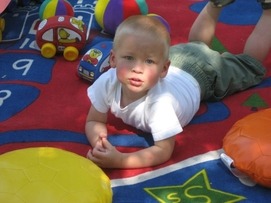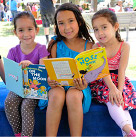Cognitive Development in Early Childhood: Understanding Key Stages and Activities
Early childhood development is critical to a child’s future physical and cognitive abilities. Research shows that the early stages of a child’s development impact education and relationship outcomes in their later life. One of the most important areas of early growth is a child’s cognitive development. Research by the University of Minnesota shows that 80 percent of a child’s brain development occurs within the first 1,000 days of life, making the first three years of development extremely important. This article will highlight the different stages of development at each age, as well as offer engaging ways to support your child’s development.
What is Cognitive Development?
Cognitive development refers to changes in a person’s thinking and memory processes and how that changes over time. Cognitive development begins from birth and continues into adulthood, with significant milestones at various ages. Each stage of development is different, but includes information processing, conceptual resources, perceptual skill, language learning, and other aspects of the developed adult brain and cognitive psychology. As a child grows older, these changes in their brain help them function more independently in the world.
Stages of Cognitive Development: From Infancy to Adolescence
There are several stages of development that occur throughout a person’s life. As a parent or caregiver, you will experience and support these early stages through interaction, play, and exposure to new people and environments. While there are specific developments we expect to see at each stage, not all children develop the same way. Be patient and understand that children learn in their own unique ways. If you have concerns about your child’s cognitive or physical development, consult your doctor. You can also access resources through CCRC.
Sensorimotor Stage (Birth to 2 Years)
Newborn babies are amazing because each new day brings growth and development. From birth to 3 months, you will likely see your baby begin to improve their motor skills, react to loud noise, and begin to focus her eyes on your face. Frequent crying is normal for newborns, who are processing the many needs they have and the world around them.
In the third to sixth month of life, babies typically start to show some personality and may begin to act more social. Motor skills should improve at this stage and many babies become more vocal. While every baby develops at a different pace, your baby should be smiling more often, babbling, and reaching for objects.
For babies approaching the 1-year mark, increased movement, constant reaching and bringing objects to their mouth, and heightened curiosity are expected. Many babies are experiencing better hand-eye coordination and will test this by attempting to smash things together with both hands. You might also expect your baby to drop items from his highchair just to watch it fall and make a sound when it hits the ground.
After celebrating the first year of life, babies are blossoming into curious, adventurous beings who want to explore the world around them. That means new experiences and milestones, as well as new messes and challenges for parents. This age group is often referred to as a “toddler.” This stage of life is when toddlers tend to start behaving more like the people they see around them, learning to use and understand more real words and attempting to walk independently.
As the near age 2, this is the age when many toddlers seem to be making great leaps in communication and motor skills. A combination of curiosity and confidence are the driving force behind these developments and many toddlers start using short sentences and walking more freely at this age. With this increased independence comes changes in behavior and many toddlers begin to show defiance and an “I want it my way” attitude.
Preoperational Stage (2 to 7 Years)
This age range tends to see a lot of personality development. At the start of this age, children begin to engage in dramatic play, or the improvised make-believe of preschool children. There are two types of thinking happening at this age: imaginative and realistic. The dual experience of these two types of thinking are an example of what researchers call “metacognition,” which is the act of reflecting on and monitoring thinking, itself. This can help children excel in the classroom so it’s important to encourage this type of play and learning.
Concrete Operational Stage (7 to 11 Years)
As children go through elementary school, they become able to represent ideas and events more flexibly and logically. Children can now solve problems more systematically than before, which helps them succeed at many academic tasks. Following instructions in order and completing simple steps are achievable at this age. They are also able to “decenter,” meaning they can focus on more than one thing at a time.
Though they can understand logic in more concrete ways, they typically are not yet able to think systematically about representations of objects or events. These more abstract, symbolic skills are developed later in childhood.
Formal Operational Stage (11 Years and Older)
In this stage, the child becomes able to reason not only about real objects and events, but also about hypothetical or abstract ideas. Here, a child can answer a “what if?” question about the world, as in: “What if we never developed cars?” This kind of thinking requires a child to imagine an alternative reality and apply current logic to it. Because children at this stage tend to be able to think in hypotheticals, they don’t need as many props to understand a concept or think about it critically.
Practical Activities to Enhance Cognitive Development
There are many different activities that parents can do with their children to support cognitive development. These activities can help provide foundational skills for academic success, as well as rationalizing the world around them.
Birth to 2 Years
Infants and toddlers learn through their senses: touch, taste, smell, sound. Sensory-rich activities are the best way to engage your young child. Try playing peek-a-boo to help them understand the idea of object permanence, which is the understanding that just because you can’t see something or someone, doesn’t mean it’s gone. Try exploring different textures by offering your baby soft, silky, rough, and bumpy items to feel. This will help them begin to understand contrast. Since most language foundations are developed at this age, read books out loud and speak to your child using a wide vocabulary.
For this age group, consider CCRC’s Milestones & More Play Kits, which are designed to support early childhood development with toys, bilingual books, safety items and more. Developed by early childhood experts, these kits allow parents and baby to learn together and grow together.
2 to 7 Years
Children at this stage are experiencing imaginative and literal thinking, so engage them through imaginative play. Use costumes or dolls and act out the characters in this fantasy world. Though they are acting as a fictional character, they are applying to the interaction real world thoughts, feelings and actions. Read books aloud and encourage them to read sections with you. Ask questions about the characters and what your child thinks might happen next in the story. Simple puzzles that require sorting and matching are also great ways to challenge their memory and organizational skills.
7 to 11 Years
By proposing more complex narratives to read, children can begin to understand how an event or challenge might evolve. Select books with more complex themes and unexpected outcomes. Try playing games that involve rules and logic, such as board games or basic science experiments. This challenges your child to follow steps and think strategically to win the game.
12 Years and Older
Encourage activities that involve strategic thinking and problem-solving, like model building, advanced puzzles, or discussing hypothetical scenarios. With a model care, for instance, your child can see what the final product should look like and can follow instructions to complete the different steps. They may even choose to make alterations to the color to make it their own. Encourage your child to think about why the steps need to be completed in a specific order – can we still access the frame of the car if we put the bumper on now?
Engage your child in hypothetical discussions to inspire deep thinking. Prompt them with questions like “What do you think the world would look like if we had commercial space travel?”
The Role of Parents and Educators
Caregivers and educators can effectively support cognitive development at various stages. It’s important to create a stimulating environment for children that both offers comfort to learn and grow, while challenging them. This includes not only the physical supports of interactive puzzles, games, books and toys, but also interaction with the child. Ask them questions and encourage them to ask questions that inspire conversations. Engage in imaginative play to encourage your child to think creatively and envision different scenarios. The more you can include language, the stronger the level of cognitive engagement. This includes reading aloud together, storytelling, discussing daily activities and interacting with others. It’s important to remain consistent and responsive to the child’s needs and questions as they develop. Click here to learn more about CCRC child care referrals that may fit your child’s developmental needs.
Recognizing and Addressing Delays in Cognitive Development
Children learn and develop at their own rate and in their own way. But sometimes they experience delays that may concern parents and caregivers. If you feel your child is not reaching important milestones outlined here and by their doctor, check back in with their health care provider to discuss a developmental assessment and possible ways to address delays. If a child is experiencing emotional and social development delays, consider talking with a child psychologist.
Conclusion
Cognitive development is essential to a child’s future success and well-being. The first few months and years of a child’s life are critical and parents and caregivers can play a key role in supporting this development. By understanding the common milestones and ways to support that growth through play and interaction, parents and caregivers can ensure their child’s development is stimulated in a way that allows them to grow and excel. If you believe your child is experiencing delays, early intervention is key. Reach out to your pediatrician for more guidance.


